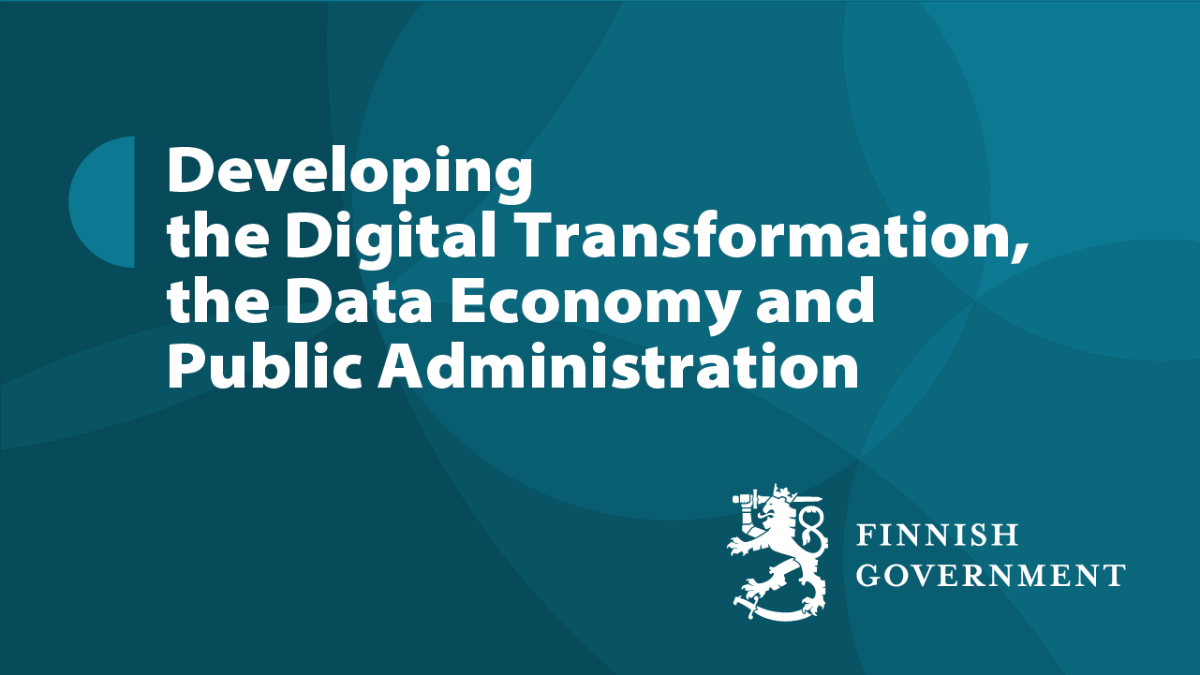Ministerial working group endorses energy saving programme in government premises

The central government will implement an extensive energy saving programme in its premises with the aim to help Finland overcome the current challenging energy situation. The Ministerial working group on developing the digital transformation, the data economy and public administration discussed the matter on 5 October. Minister of Local Government Sirpa Paatero fully took over as chair of the ministerial working group for the remainder of the government term.
The goal of the energy saving programme is to save 50–70 gigawatt-hours of energy and as much as EUR 10 million in energy costs. Russia’s invasion of Ukraine has rapidly altered the energy situation in all of Europe. Prices for electricity and heat are on the rise, and justified concerns have been expressed about the sufficiency of electricity in Finland.
The national Down a Degree energy saving campaign will be launched on 10 October during Energy Saving Week. The campaign encourages companies, organisations and people to participate in efforts to save energy. This programme is one measure the government is taking to save energy.
“The central government wants to set an example in saving energy, so that there will be enough for everyone this coming winter. At the same time, we are curbing the steep rise in the government’s energy costs,” says Minister of Local Government Paatero.
The energy saving programme will be implemented by lowering room temperatures
Senate Group, which is responsible for the government's premises, will implement the energy saving programme in cooperation with government agencies and public bodies. The amount of energy saved will correspond to the annual consumption of approximately 3,750 single-family houses.
The energy saving programme will be implemented, for example, by lowering room temperatures to an average of 20.5 degrees and by adjusting technical building services and lighting in government buildings. All of these measures will be implemented in a way that does not jeopardise health and safety at the premises.
“The Down a Degree campaign encourages everyone to take part in saving energy, and it is only natural for the government to do its part. We have to share the burden of the energy challenges we are facing. Everyone needs to pitch in. Everything we can do to save energy will help our electricity grid function during the heating season,” says Minister of Economic Affairs Mika Lintilä.
Giving up unnecessary premises will increase energy efficiency
The most important way for the central government to reduce energy consumption, emissions and costs is to give up unnecessary premises in accordance with the central government premises strategy. The ministerial working group decided that government agencies and public bodies will measure the occupancy rates of their premises during the autumn. Based on this information, the agencies and public bodies along with Senate Properties and Defence Properties Finland will agree by the end of 2023 on what unnecessary premises to give up.
The amount of energy consumed in central government premises annually is about one terawatt-hour, which is 1,000,000 million megawatt-hours. The Senate Group's energy costs have been about EUR 100 million a year.
Digital Compass to be submitted to Parliament as a report
The ministerial working group decided that Finland’s Digital Compass will be submitted to Parliament as a report in October. The Digital Compass formulates a shared national vision and targets for the digital transformation and the data economy for 2030. The vision of Finland's Digital Compass is building a digitally capable Finland that is attractive, competitive, sustainable and prosperous.
This Digital Compass revolves around four cardinal points: skills, secure and sustainable digital infrastructures, the digital transformation of businesses, and the digitalisation of public services. Finland’s Digital Compass is based on the EU’s Digital Compass, which was presented in 2021.
The responsibility of chairing the ministerial working group is divided into two parts: Minister Paatero always chairs matters relating to the development of public administration, while matters concerning the digital transformation and the data economy have been chaired in rotation by Minister of Transport and Communications Timo Harakka, Minister of Economic Affairs Lintilä and now Minister of Local Government Paatero until the end of the government term.
Minister Paatero’s term as chair aims to create a long-term commitment to the vision and objectives set in Finland’s Digital Compass and to draft an implementation plan that condenses and unifies these objectives. Developing a joint government portfolio for digital matters will also create the conditions for steering and implementing the digital transformation in central government.
Inquiries:
Valtteri Aaltonen, Special Adviser to the Minister of Local Government, tel. +358 295 530 399
Matias Ollila, Special Adviser to the Minister of Economic Affairs, tel. +358 295 047 412
Juha Sarkio, Director General, Ministry of Finance, tel. +358 295 530 031 (energy saving programme)
Jarkko Levasma, Government Chief Information Officer, Ministry of Finance, tel. +358 295 530 117 (Digital Compass)
Laura Eiro, Director General, Ministry of Transport and Communications, tel. +358 400 969 293 (Digital Compass)
Mika Nordman, Director of Digital Services, Ministry of Economic Affairs and Employment, tel. +358 295 047 142 (Digital Compass)
Ministerial working group on developing the digital transformation, the data economy and public administration
Down a Degree campaign (in Finnish)



